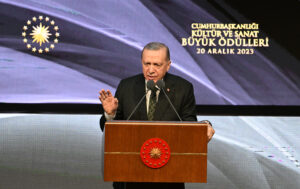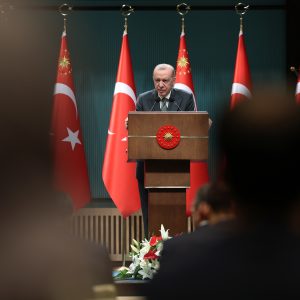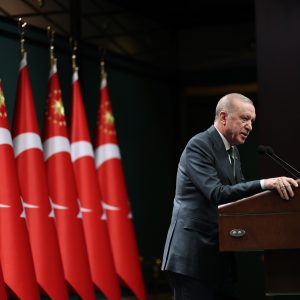Starmer will follow US on Gaza but likely diverge on West Bank: veteran British journalist
LONDON (AA) – UK Prime Minister Keir Starmer will keep following the US in terms of polices on Gaza, but could take a different approach when it comes to the occupied West Bank, says veteran British journalist Peter Oborne.
In an interview with Anadolu, Oborne emphasized that Israel’s genocide in Gaza, now in its second year, has underscored a significant disconnect between political leaders and the British public.
While the crisis had no immediate impact on the UK’s July general election, he believes it could catalyze profound political changes in the long term.
“There were very interesting signs in July that there was a rebellion against this cross-party cartel over Gaza, between Starmer’s Labour and the Conservatives,” said Oborne, former chief political commentator for The Daily Telegraph.
He said the victories of four independent MPs allied with ex-Labour leader Jeremy Corbyn could signal the birth of a new left-wing movement.
“This can develop into a new political movement altogether … the beginning of a new left-wing party,” he said.
– ‘Trump isn’t frightened of Netanyahu’ –
Outgoing President Joe Biden was “frightened” of Israeli Prime Minister Benjamin Netanyahu, he said, but Trump is a different case.
“Trump isn’t frightened of Netanyahu, and I should think that Netanyahu is frightened of Trump because Trump is so erratic,” he said.
He suggested that Trump’s alliances could lean toward Israel’s far-right figures like Finance Minister Bezalel Smotrich and National Security Minister Itamar Ben-Gvir, who want a “much-expanded Israel” that could ignite a wider conflict.
“What they signal is that Trump is going to be not so much of Netanyahu, but of Smotrich and Ben-Gvir. And that vision of the future … suggests that you’re going to have all-out war in the Middle East,” Oborne warned.
He described Trump’s rhetoric on Iran as “absolutely terrifying,” cautioning that any conflict involving Tehran would have catastrophic consequences on global economics and politics.
– ‘Starmer will do what America tells him to do’ –
Regarding Britain’s role, Oborne was critical of Starmer’s alignment with US policies, particularly in matters concerning Israel and Palestine.
“The key thing to understand about Keir Starmer is that he will do what America tells him to do,” Oborne asserted, citing the Labour leader’s first few months as prime minister as evidence of his deference to Washington.
However, he noted that Starmer might struggle to find common ground with Trump.
“Trump’s instincts are completely different to Starmer’s,” said Oborne, adding that the British premier would have had more common ground with Kamala Harris, who lost to Trump in the Nov. 5 presidential election.
– Britain would oppose West Bank annexation –
One of the central issues Oborne highlighted was Starmer’s likely stance on Israel’s controversial settlement policies and potential annexation of the West Bank.
“Britain would vote against it in the Security Council,” he asserted.
The US might support or tolerate annexation under certain administrations, but the UK under Starmer would likely take a principled stand, he added.
This could place Starmer at odds with pro-Israel factions within the Labour Party and in broader international politics.
“I can’t imagine Starmer allowing settlement of Gaza by Israeli settlers,” said Oborne.
– ‘Nightmare option’ –
Oborne cautioned, however, that this could lead to significant internal tensions within Labour: “I can’t … imagine Starmer without a huge revolt in the Labour Party” if he were to deviate from this stance.
Such a conflict is a “nightmare option,” said Oborne, criticizing Starmer for his apparent silence on breaches of international law by Israel.
“He had no complaints when Israel smashed international law with the … attack on the Iranian consulate in Damascus,” he said.
He also referenced Starmer’s lack of public opposition to the “targeted assassination” of Iranian officials, as well as the killing of former Hamas leader Ismail Haniyeh in Tehran.
Such actions, described by Oborne as “gross abuses of international law,” raise questions about Starmer’s willingness to challenge Israel on controversial military actions.










